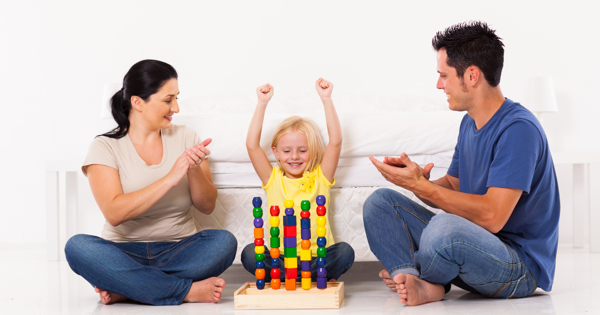You want your children to feel good about themselves and it is certainly possible to raise children who do.
By: Susan Adams, M. Ed.
 However, to do so means a new way of approaching children than the way that was used when most of us grew up.
However, to do so means a new way of approaching children than the way that was used when most of us grew up.
Most of us grew up with punishment and a good dose of criticism. Our parents meant well. They thought that their job was to "perfect" the child rather than to enjoy us as children, relive their childhood through us, and come to a better understanding of how their parents felt when they made the decisions that they made.
There are three factors that children need to feel good about themselves.
Emotional factors
Children need love, self importance, independence as appropriate, physical comfort, trust, compassion acceptance, honesty, and reliability. You may think of more.
These are the constants needed to build security
.
Relationships
Children need a positive system of self-evaluation. This comes from self-reinforcement as well as from significant others. It comes in the form of praise and the conversation with children about how we decide right from wrong.
We praise children for WHO they are rather than WHAT they do. Thus, their wonderful intrinsic qualities like a sense of humor, intelligence, and kindness cannot ever be taken away. This becomes the child's sense of WHO he is.
We talk to children about decision-making. How do we decide on what is the right thing to do? We look at the consequences of each alternative and pick the best one.
And, when children make mistakes, we don't criticize or scold. We have the conversation about how that decision was made and what alternatives could occur next time.
Thus, we raise children who see us as help agents rather than punishes..
Competency
It is important to help children find the thing or things at which they excel. Doing things about which we feel good is a self-esteem builder.
How we treat our children often determines how they feel about themselves. When something goes wrong, it is important to separate the situation and the child's worthiness.
Every gesture or facial expression made by adults sends a message to the child. To raise respectful children, we must treat our children with respect. Many times we send nonverbal messages to our children without realizing it. These messages can damage self-esteem when they are negative.
Please remember, that all of us grow up to or down to expectations of others. Keep your expectations reasonable and positive and your verbal and nonverbal messages together and encouraging and positive.
This approach has the best chance of producing children who like themselves.
Did you Know? The best ways to build self-worth are
- Being listened to with respect.
- Doing things about which you feel good.
